Headache:
Headaches are a common condition that many people experience every day.
The transition from being uncomfortable to being intolerable can affect your daily life.
There are many types of headaches, and headaches are very common. The migraine headaches are painful and occur in groups or “clusters,” while migraines are moderate to moderate.
Although many medicines are intended to relieve headaches, many natural remedies are also available.
1. Try the Cold Pack:
If you have a migraine, put a cold pack on your forehead. Ice cubes wrapped in a towel, a bag of frozen vegetables, or even a cold shower can relieve pain. Keep the compress on your head for 15 minutes, then take a break for 15 minutes.
2. Acupressure:
Acupressure involves the use of pressure on certain parts of the body. Rejuvenating certain body points in this way is believed to relieve muscle tension and reduce pain.
One popular pressure point is the space between the base of the left thumb and index finger.
3. Drink Water:
Lack of insufficient hydration can lead to migraine headache management. In fact, studies have shown that chronic dehydration is a common cause of headaches and migraines.
Thankfully, drinking water has been shown to relieve headaches in most dehydrated people within 30 minutes to 3 hours.
In addition, dehydration can interfere with concentration and cause irritation, making your symptoms seem worse.
To help prevent headaches from dehydration, focus on drinking enough water throughout the day and eating foods rich in water.
Applying strong circular but non-painful pressure in the area, using the opposite hand for 5 minutes, may reduce headaches.
2012 study A reliable source looked at 40 people who had migraines without aura. It was found that pressure on three fingers above the base of the wrist inside the arm, was effective in relieving nausea or vomiting related to migraine.
4. Dietary changes:
Most migraine sufferers are aware of certain foods that may cause them.
Identifying the possible cause of migraine is important. Some people use a food diary or a migraine journal to trace the possible causes.
Changing your diet or eating patterns to avoid triggers can help prevent future migraines.
5. Use Heating Pad or Hot Compress:
If you have a depressive headache, put a warm spot on your neck or behind your head. If you have a sinus headache, hold a warm cloth over the sore area. Warm baths can also do the trick.
6. Essential oils are essential:
Essential oils are often used as natural remedies or as antimicrobials in homemade cleaning products.
Lavender is an essential oil that is often recommended as a remedy for depression, anxiety, and headaches. A small study by Trusted Source published in European Neurology found that inhaling lavender oil helps reduce some people's headaches.
The results are encouraging, but further research using larger-sized samples is needed.
7. Reduce Stress In Your Head or Head:
If your ponytail is too tight, it can cause headaches. These “external pressure heads” can also be brought on by wearing a hat, headband, or sturdy swimsuit.
8. Take Magnesium:
Magnesium is an essential mineral needed for many functions in the body, including blood sugar control and nerve transfer.
Interestingly, magnesium has also been shown to be a safe, effective remedy for headaches.
Evidence suggests that magnesium deficiency is more common in people with chronic headaches, compared to those without.
Studies have shown that treatment with 600 mg of oral magnesium citrate per day helped reduce both the frequency and severity of migraine headaches.
However, taking magnesium supplements can cause digestive effects like diarrhea in some people, so it is best to start with a small dose when treating headaches.
9. Ginger:
A 2014 study A reliable source of 100 participants compared the efficacy of ginger powder with sumatriptan, a common migraine remedy.
10. Get Enough Sleep:
Insomnia can be dangerous to your health in many ways, and it can also cause headaches in some people.
For example, one study compared the frequency of headaches and severity with those who slept less than six hours a night and those who slept longer. It has been found that those who do not sleep well have frequent and severe headaches.
However, excessive sleep is also shown to cause headaches, which makes getting the right amount of rest important for those who want to protect their natural head.
11. Lower the Lights:
A bright or flashing light, even on your computer screen, can cause headaches. If you are accustomed to them, close your windows with dark curtains during the day. Wear sunglasses outside. You can also add anti-glare screens to your computer and use daylight-spectrum fluorescent lamps on your lighting equipment.
12. Pressure control:
Depression is a common cause of migraines. Depression can also create a cycle in which migraine pain increases stress, which in turn causes another migraine.
Finding areas of stress, such as writing, exercise, or meditation, can help prevent future migraines.
People can also try taking a stress management class. They may choose to take a warm bath or listen to music, too, in an effort to ease their stress.
By doing these good deeds, a person chooses to control his body's response to stress in his life.
13. Avoid Foods High in Histamine:
Histamine is a naturally occurring chemical in the body that contributes to the immune system, digestive and nervous systems.
It is also found in certain foods such as aged cheese, boiled foods, beer, wine, smoked fish, and processed meat.
Studies show that the use of histamine may cause migraines in those who are sensitive to it.
Some people are unable to produce histamine properly because they have an imbalance of the enzymes responsible for breaking down.
Cutting off histamine-rich foods in the diet may be a helpful strategy for people with frequent headaches.
14. Yoga or stretching:
Yoga is thought to help improve blood flow and reduce muscle tension, which can help alleviate symptoms in people suffering from migraines.
A comprehensive study of the 2014 Reliable Source compared the general treatment of migraine with and without the addition of regular yoga practice.
The researchers found that the group that participated in the yoga program had more relaxation than the group that joined the regular treatment alone.
15. Try Not to Chew:
Chewing gum will hurt not only your jaw but also your head. The same is true of chewing on your nails, lips, the inside of your cheeks, or other objects such as pens. Avoid sticky and sticky foods, and make sure you eat small meals. If you brush your teeth at night, ask your dentist about a mouthguard. This may prevent your morning headaches.
16. Get Caffeine:
Have tea, coffee, or something with a little caffeine. If you get it early after the pain starts, it can relieve your headaches. It can also help over-the-counter pain relievers like acetaminophen work better. Just don’t drink too much because caffeine withdrawal can cause its own type of headache.
17. Massage:
Massaging the muscles in the neck and shoulders can help relieve tension and reduce migraine pain. Massage can reduce stress.
People may choose to use a professional masseuse for massage. Apart from that, taking a tennis ball and using it to massage the shoulders and back is another inexpensive option.
18. Take Vitamin B complex:
Vitamin B is a group of water-soluble micronutrients that play many important roles in the body. For example, they contribute to the synthesis of neurotransmitters and help convert food into energy.
Some B vitamins may have a protective effect on the scalp.
Several studies have shown that vitamin B supplementation with riboflavin (B2), folate, B12, and pyridoxine (B6) may reduce headaches.
B vitamins contain all eight B vitamins and are a safe, inexpensive way to naturally treat headaches.
Vitamin B is considered safe to take regularly, as it dissolves in water and any excess will be excreted in the urine

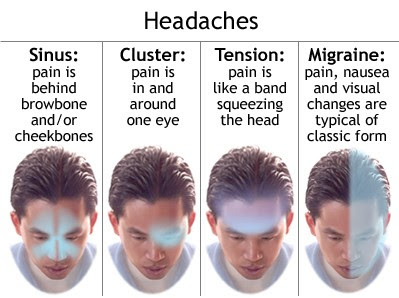




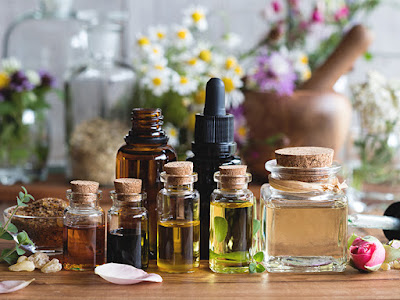

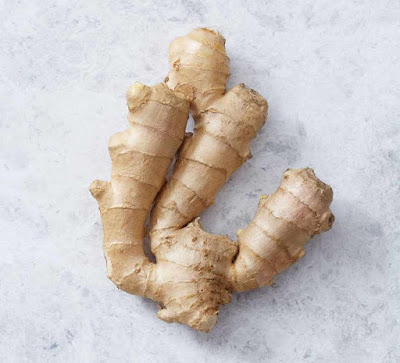
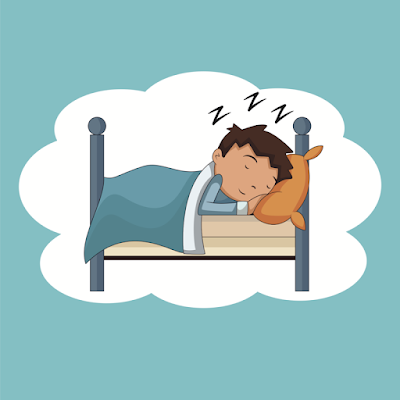

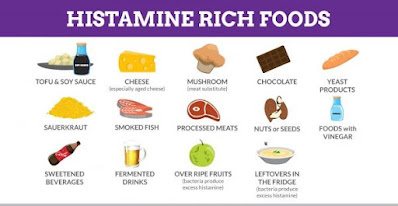










0 Comments
Please do not enter any spam link in the comment box.